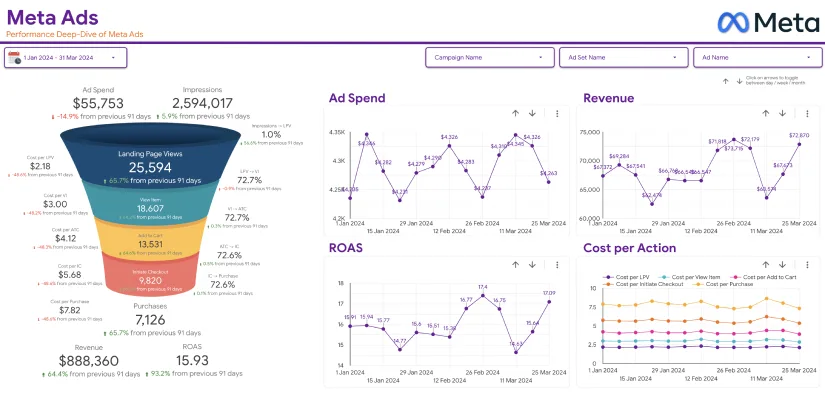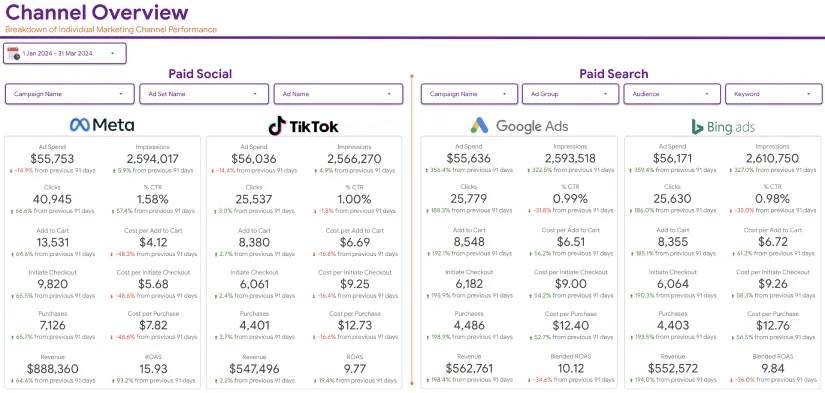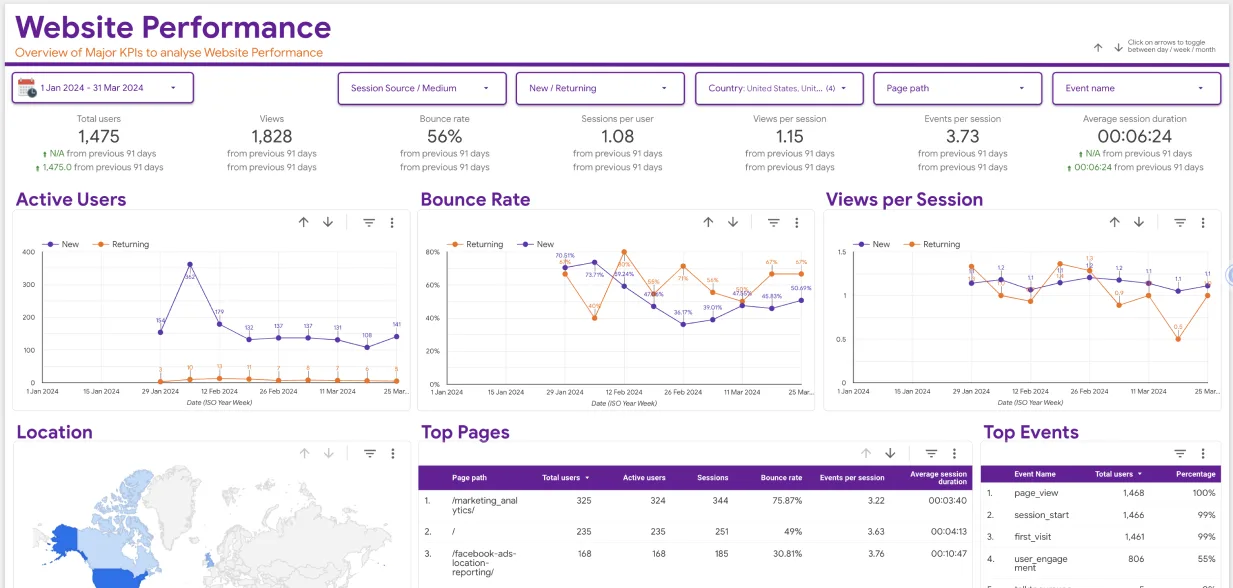In today’s digital age, the success of an app or product hinges greatly on its performance. Users demand seamless experiences, and any glitches or lags can lead to frustration and abandonment. This is where deep dive analytics comes into play, offering businesses a comprehensive solution to monitor, analyze, and optimize performance like never before.
Understanding the Importance of App/Product Performance
Understanding the performance of your app or product is crucial for success in today’s competitive market. By recognizing key performance indicators and addressing issues proactively, you can ensure your app or product meets user expectations and drives sustainable results. Using tools like Google Data Studio templates can further enhance your ability to visualize and analyze performance data, making it easier to track progress and make informed decisions.
Impact on User Experience
The user experience (UX) is paramount in determining the success of any app or product. Poor performance, such as slow loading times or frequent crashes, can leave users dissatisfied and prompt them to seek alternatives.
Business Implications
Beyond user experience, app/product performance has significant business implications. High bounce rates and low engagement levels can directly impact conversion rates and revenue generation, making it imperative for businesses to prioritize performance optimization.
What is Deep Dive Analytics?
Deep dive analytics refers to a sophisticated approach to analyzing data, providing businesses with in-depth insights into various aspects of app/product performance. Unlike traditional analysis, deeper analytics offers real-time monitoring, comprehensive data insights, and predictive analytics capabilities.
Key Features and Benefits
Real-time Monitoring
One of the standout features of deeper analytics is its ability to monitor app/product performance in real-time. This means that businesses can identify issues as they occur and take immediate action to rectify them, minimizing downtime and maximizing user satisfaction.
Comprehensive Data Insights
Deep dive analytics provides businesses with a wealth of data insights, allowing them to gain a deeper understanding of user behavior, system performance, and potential bottlenecks. This comprehensive view enables more informed decision-making and targeted optimizations.
Predictive Analytics
By leveraging advanced algorithms and machine learning techniques, deep dive analytics can predict future performance trends with a high degree of accuracy. This proactive approach enables businesses to anticipate issues before they arise and implement preventive measures accordingly.
Implementing Deep Dive Analytics
Choosing the Right Tools
When implementing deep dive analytics, it’s essential to choose the right tools that align with your business objectives and technical requirements. Factors to consider include scalability, ease of integration, and compatibility with existing systems.
Integration with Existing Systems
Integrating deep dive analytics with existing systems can be challenging, but it’s crucial for maximizing its effectiveness. Businesses need to ensure seamless data flow between different platforms and establish clear communication channels to facilitate collaboration across teams.
Case Studies: Success Stories
Numerous businesses have reaped the benefits of deeper analytics, achieving significant improvements in app/product performance and user satisfaction. For example, a mobile gaming company used deep dive analytics to identify performance bottlenecks and optimize game mechanics, resulting in a 30% increase in user engagement.
Challenges and Solutions
While deep dive analytics offers immense potential, it’s not without its challenges. Common issues include data integration complexities, resource constraints, and privacy concerns. However, with careful planning and strategic implementation, these challenges can be overcome.
Future Trends in Deep Dive Analytics
Looking ahead, the future of deep dive analytics looks promising, with advancements in AI, cloud computing, and big data analytics driving innovation in the field. We can expect to see more sophisticated algorithms, enhanced visualization techniques, and greater automation capabilities.
Conclusion
In conclusion, deeper analytics is revolutionizing the way businesses approach app/product performance optimization. By providing real-time monitoring, comprehensive data insights, and predictive analytics capabilities, deep dive analytics empowers businesses to deliver seamless experiences and drive long-term success. Get in touch with Eaglytics-Co to analyze your deep dive analytics performance.
Deep dive analytics is revolutionizing the way businesses approach app and product performance optimization. By providing real-time monitoring, comprehensive data insights, and predictive analytics capabilities, deep dive analytics empowers businesses to deliver seamless experiences and drive long-term success. As we look toward the future of analytics, these tools will become even more advanced, offering deeper insights and more precise predictions. Get in touch with Eaglytics-Co to analyze your deep dive analytics performance and stay ahead in this evolving landscape.
FAQs (Frequently Asked Questions)
1. What industries can benefit from deep dive analytics?
Deep dive analytics can benefit a wide range of industries, including e-commerce, gaming, healthcare, finance, and more. Any business that relies on digital products or services can leverage deep dive analytics to improve performance and user experience.
2. How does deep dive analytics differ from traditional analytics?
Traditional analytics typically focus on surface-level metrics and historical data, whereas deep dive analytics offers a more in-depth and real-time analysis of app/product performance. It utilizes advanced algorithms and machine learning techniques to provide actionable insights and predictive capabilities.
3. Is deep dive analytics suitable for small businesses?
Yes, deep dive analytics can benefit small businesses as well, especially those operating in highly competitive markets where performance optimization is crucial for survival. Many deep dive analytics tools offer scalable solutions tailored to the needs and budgets of small businesses.
4. What are the privacy concerns associated with deep dive analytics?
Privacy concerns related to deep dive analytics primarily revolve around data security and user consent. Businesses must ensure compliance with regulations such as GDPR and CCPA and implement robust data protection measures to safeguard sensitive information.
How can I measure the ROI of implementing deep dive analytics?
Measuring the return on investment (ROI) of deep dive analytics involves assessing various metrics such as user engagement, conversion rates, and revenue growth. By tracking key performance indicators before and after implementing deep dive analytics, businesses can quantify the impact on their bottom line.



